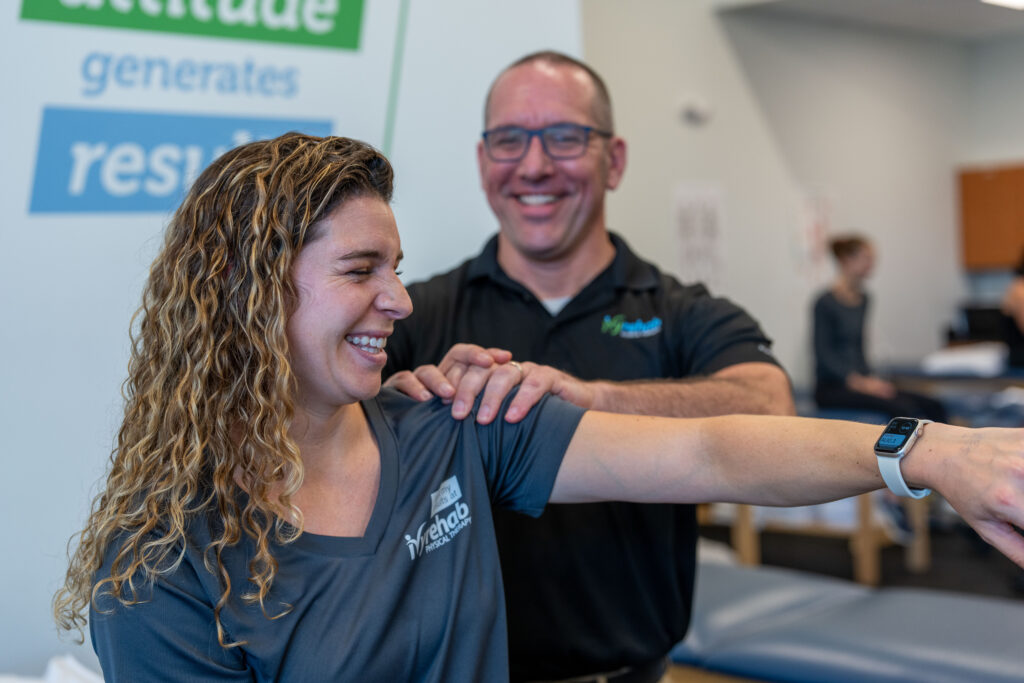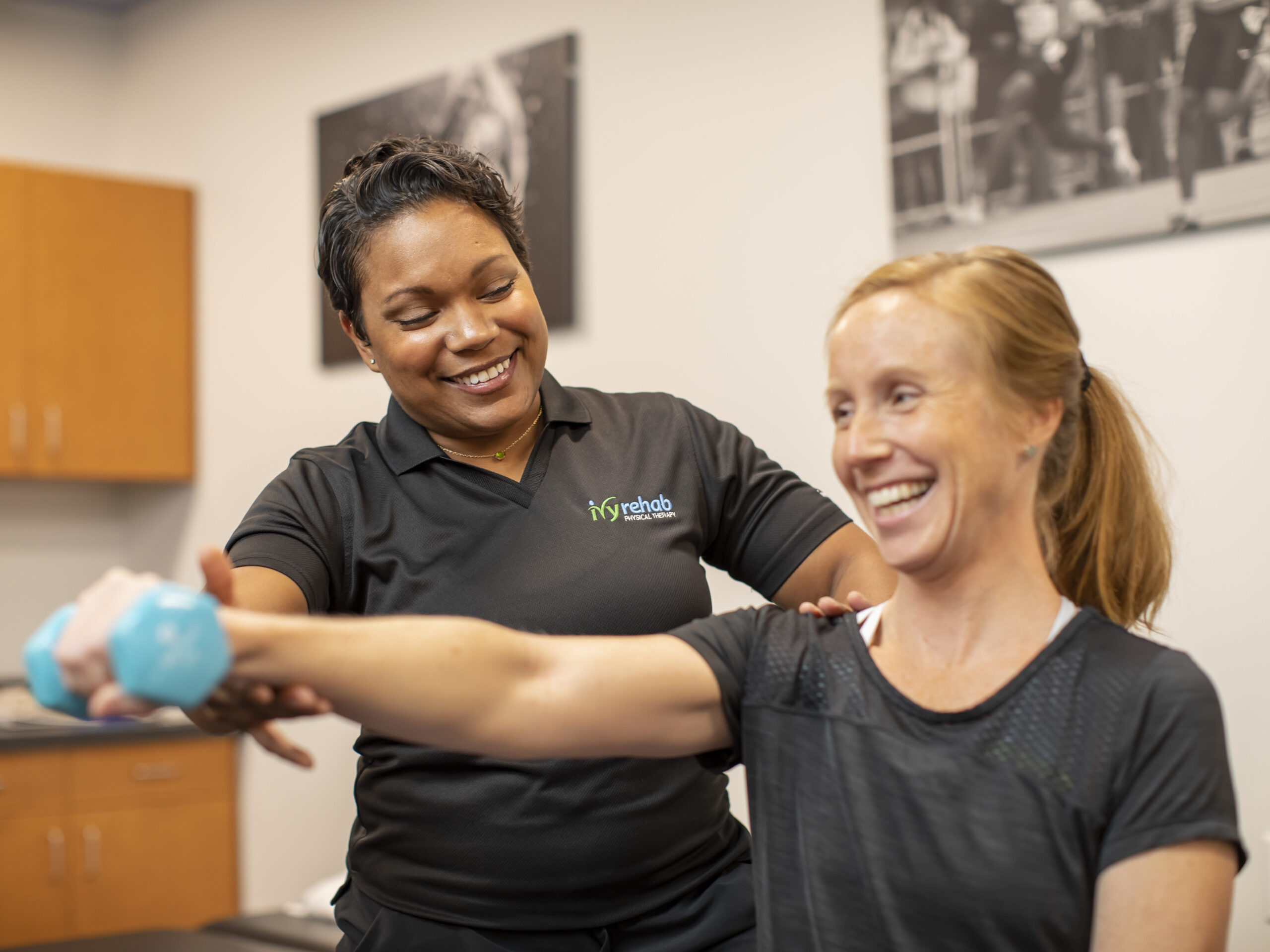
Shoulder Pain
Shoulder pain can make even the simplest tasks—like reaching for a glass or getting dressed—frustrating. Whether it’s a dull ache, sharp discomfort, or stiffness that limits movement, Ivy Rehab is here to help you get back to doing what you love, pain-free.
Why does my shoulder hurt?
Your shoulder is a complex joint, and pain can come from many sources. Some of the most common causes include rotator cuff tears, impingement syndrome, bursitis, tendinitis, frozen shoulder, labral tears, shoulder instability, osteoarthritis, and fractures. Each condition affects the shoulder differently, leading to pain, weakness, and reduced mobility. If you’re wondering about the best treatment for shoulder pain, early intervention and personalized care can make all the difference.


Signs it’s time to take action.
Shoulder pain symptoms can present in many ways, but some signs indicate it’s time to seek help:
- Persistent Pain: Whether sharp, dull, or radiating, ongoing discomfort shouldn’t be ignored.
- Stiffness & Weakness: If lifting, reaching, or rotating your arm has become difficult, there may be an underlying issue.
- Clicking or Popping: Unusual sounds could signal instability or soft tissue damage.
- Swelling & Tenderness: Inflammation can indicate an injury or degenerative condition.
Common myths about shoulder pain.
Many people believe that rest alone will resolve shoulder pain, but prolonged inactivity can worsen stiffness and delay healing. Surgery is not always necessary – many conditions improve significantly with physical therapy for shoulder pain and targeted treatments. And while some mild aches may fade on their own, persistent or worsening pain often requires intervention to prevent further damage.

How we provide shoulder pain treatment.
Most shoulder pain treatment plans can be managed without surgery. At Ivy Rehab, we tailor care to each patient, offering:
- Physical Therapy for Shoulder Pain: A structured program to restore strength, mobility, and function.
- Activity Modification: Smart movement strategies to reduce strain.
- Postural Training: Improving mechanics to relieve stress on the joint.
- Pain Relief Techniques: Hands-on therapy, stretching, and strengthening exercises.
- Advanced Interventions: For persistent cases, corticosteroid injections or PRP therapy may be considered.
Shoulder pain exercises for recovery.
A physical therapist can guide you through specific shoulder pain exercises to aid recovery and prevent future discomfort. These may include:
- Gentle range-of-motion exercises to maintain flexibility
- Rotator cuff strengthening routines to support join stability
- Postural correction techniques to reduce strain and enhance alignment
When to see a shoulder pain specialist.
If shoulder pain is stopping you from doing the things you love, don’t wait. You should seek a shoulder pain specialist if you:
- Have persistent shoulder pain lasting more than two weeks
- Struggle with lifting, reaching, or daily tasks
- Experience weakness or instability in your shoulder
- Need post-surgical rehab or recovery support

Take the first step toward relief.
Shoulder pain doesn’t have to hold you back. Ivy Rehab’s expert team is ready to help you move freely again. Schedule an appointment today for the best treatment for shoulder pain.


